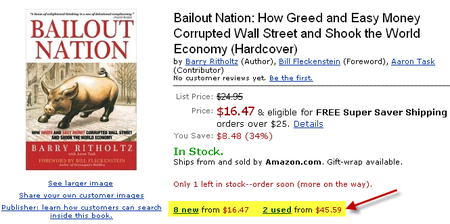The first—and most common so far—is the accidental tourist:
A lone writer who starts a blog as a mere hobby but then wakes
up one day to realize his audience is now as big as a small city
newspaper. The liberal journalist Joshua Micah Marshall went
this route: He started the Talking Points Memo blog during
the November 2000 election recount “just for fun,” and his
audience grew slowly, reaching 8,000 a day in the first two
years.
A variation on this theme is when a lone blogger teams up
with the mainstream media. Andrew Sullivan is the first example
of an endgame strategy that may become quite common in the
future. In 2000, Sullivan started his blog, The Daily Dish, as a
part-time sideline, funding it via donations and ads for five
years. Then in January, Time magazine agreed to lease his URL
for one year, making it part of its online offerings. Though
Sullivan says “I didn’t get rich,” he figures the deal will earn
him almost half his income this year.
The second basic blogging business model is the
record-label approach: Crank out dozens and
dozens of sites and hope that one or two will become
hits. The pioneer here is the new-media entrepreneur
Jason Calacanis, who founded Weblogs, Inc., in September
2003 and began rapidly shotgunning new blogs into
obscure niches: Tablet PCs, Microsoft Office, “telemedicine,”
and the like. It is not, many note, a recipe for quality writing.
Calacanis scored an enormous hit with Engadget, the second
most-linked-to site on Technorati. “AOL basically paid $25
million for Engadget”.
The third and final model? The boutique approach: a publisher
who crafts individual blogs the way Condé Nast crafts magazines
—each one carefully aimed at some ineffable, deluxe readership.
This is Nick Denton’s modus operandi. Though he set up shop
three and a half years ago, making his the oldest blog empire
around, he has launched a mere fourteen blogs. They are all,
however, in niches that target high-spending, well-educated
readers—such as gossip, sex, and politics. The aim is to hit the
sweet spot: big readerships, but not hoi polloi. Gawker even
claims to turn away advertisers that are too low-rent; the site’s
ad manager boasted to Mediaweek that it takes no Ford or Chevy
ads because “we hate American cars” and no pharmaceutical
ads because “our readers are healthy and beautiful.”
Denton is famous for spending months hunting for writers
with the snark and wit that his audience likes. He’s also equally
famous for being tight with a buck: His bloggers work from home,
get no equity, and make salaries that are by all accounts
unremarkable, even by the paltry standards of journalism.
Continue reading "Blogging empires" »


